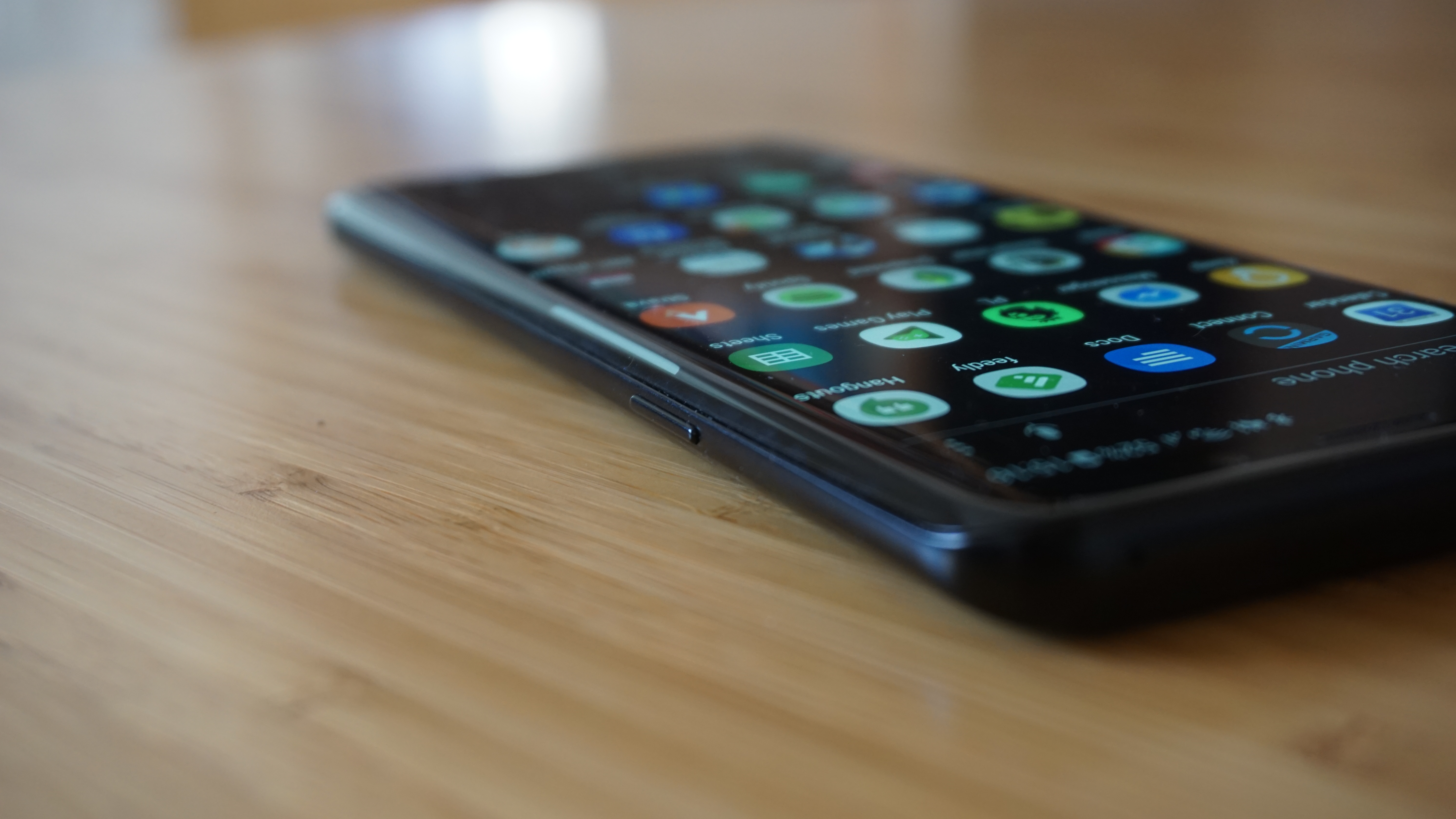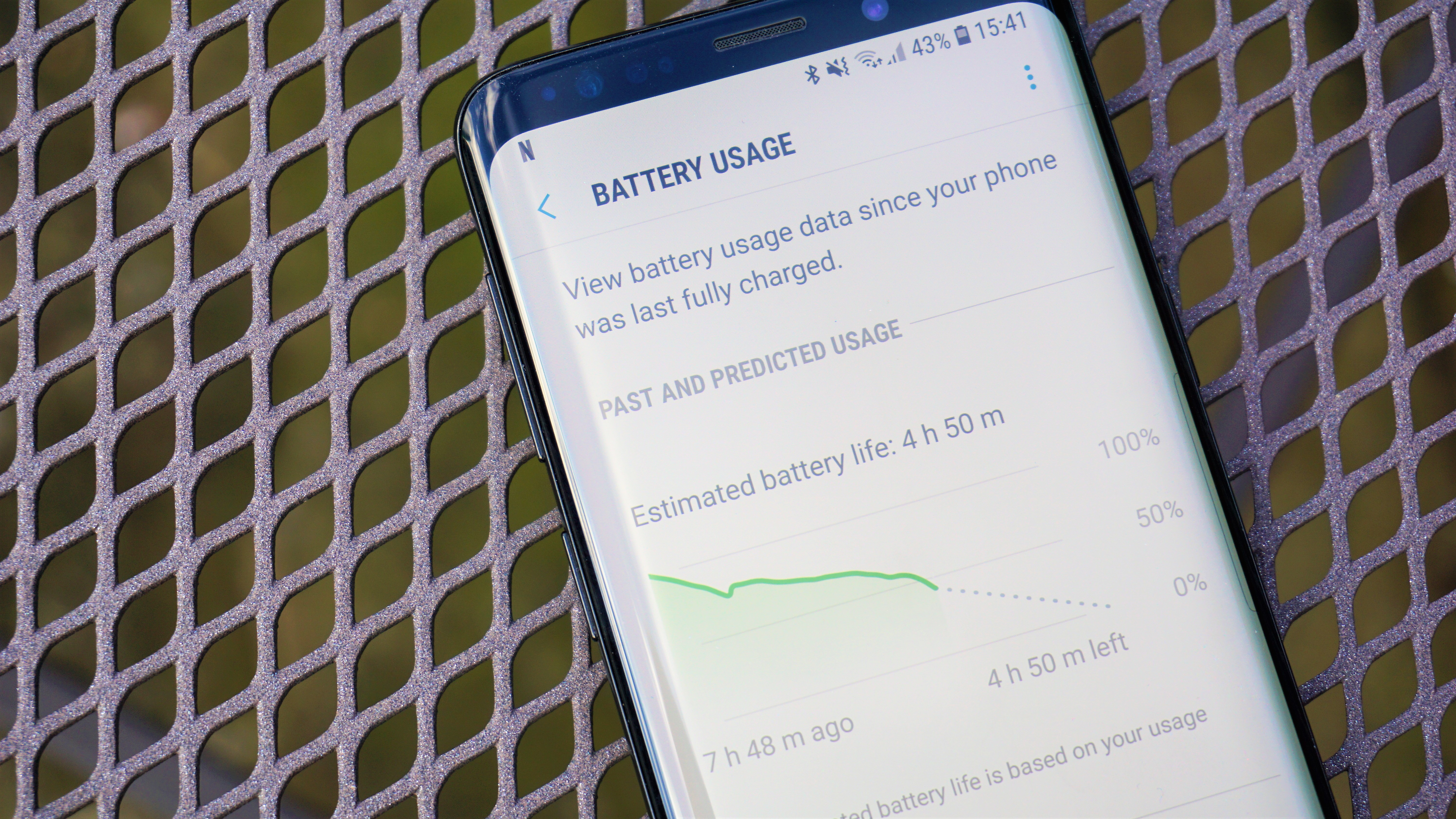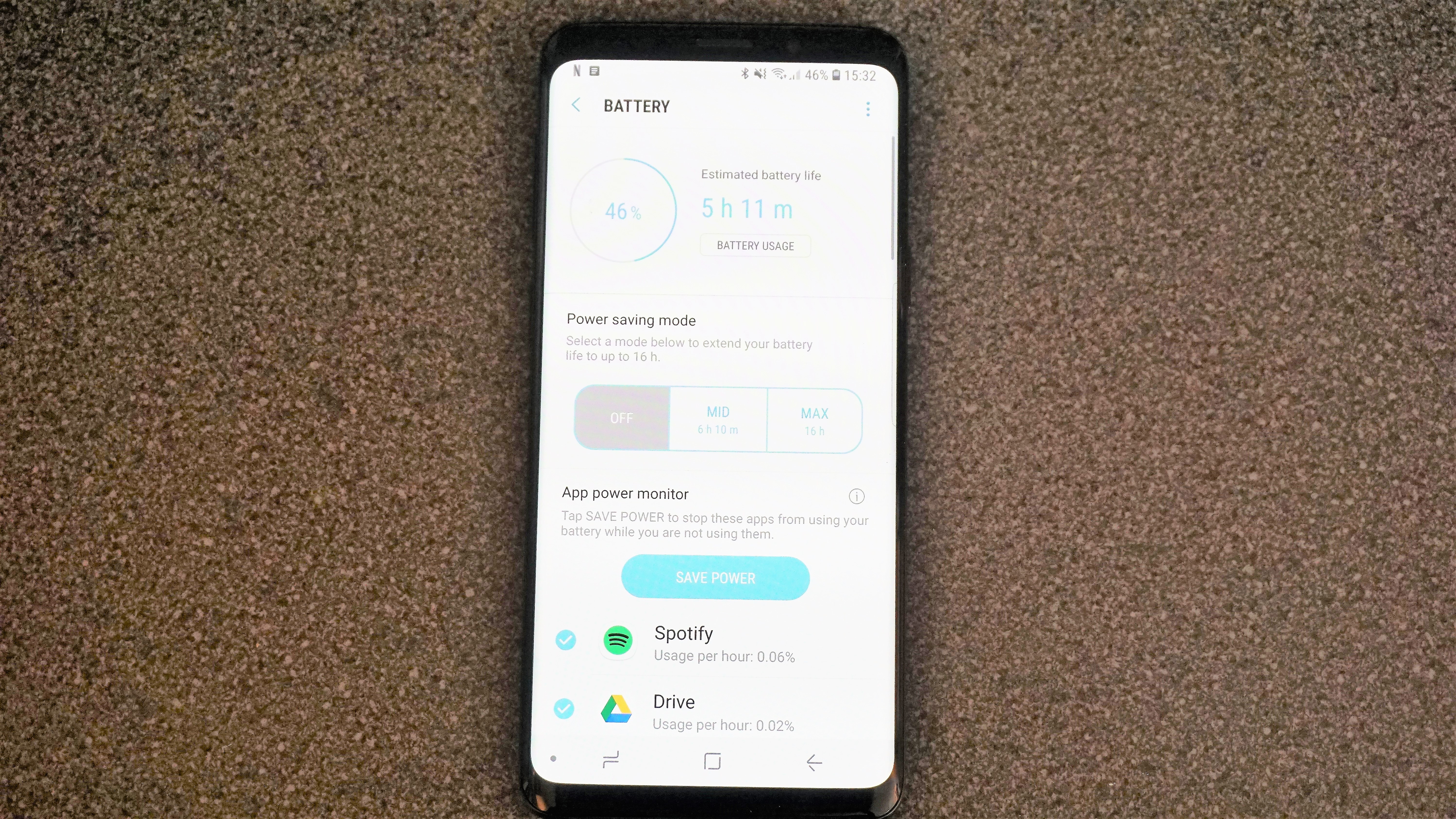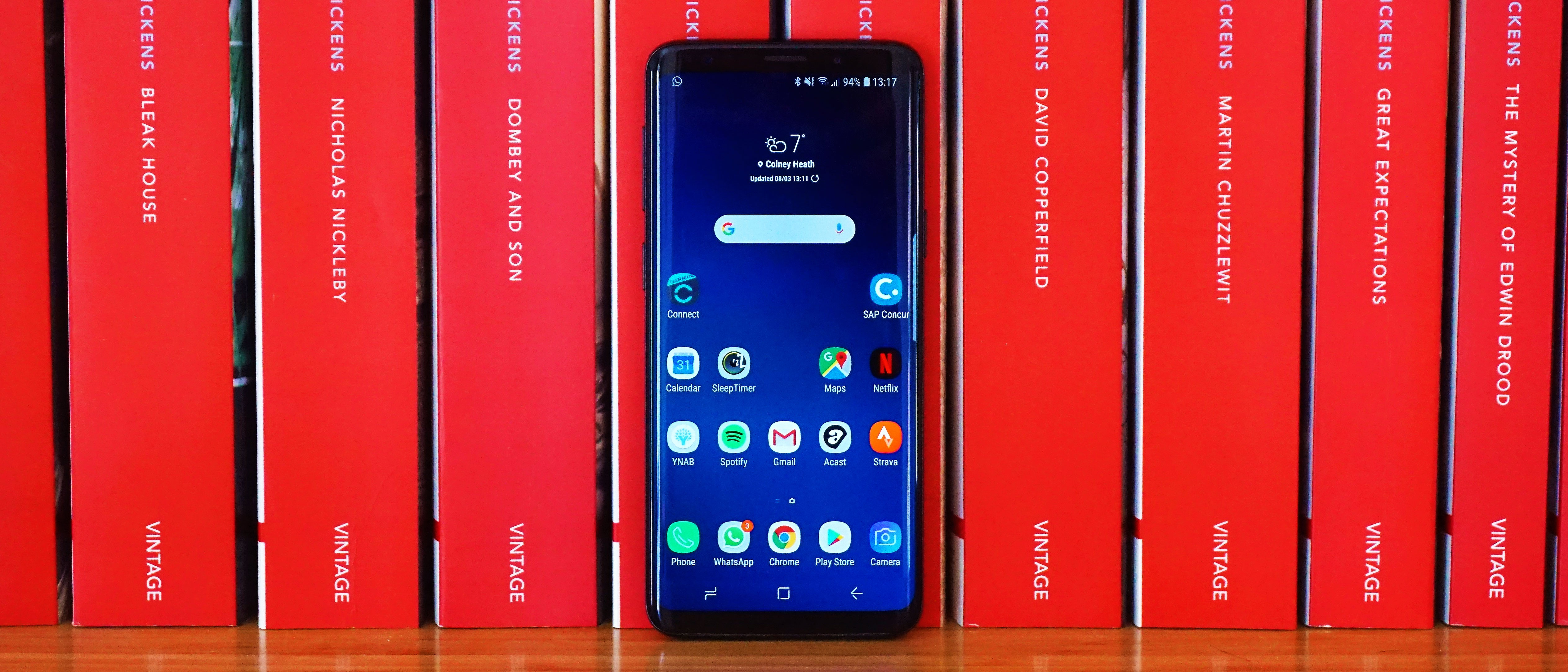Why you can trust TechRadar
- Battery life is disappointing
- Not much change from last year

We’re disappointed with the battery life in the Samsung Galaxy S9, as it’s not made the jump forward we expected.
With the same 3,000mAh power pack on board as the Galaxy S8 and the same amount of pixels to drive, but with a more efficient processor, and with Samsung having had a year to refine the software, we were expecting big things from the Samsung Galaxy S9’s battery.
What we got was something that’s a bit more ‘slippery’ than the Galaxy S8. Where we’d have around eight hours of battery life left when the indicator was showing 60% full, now we’re seeing the same numbers at 70%.
The worry with Android phones is always that there’s a nefarious app playing around in the background, causing more power to be drained than necessary, but our constant checking showed that it was usually just the screen – which is brighter this year – drawing more power.
What’s interesting here is that Samsung has clearly optimized things, as when we ran our standard video test (90 minutes of a Full HD video at maximum brightness) the Galaxy S9 only lost 17% of its battery.

That’s not the best we’ve seen on test (for comparison, the iPhone X lost just 10% using the same screen technology as Samsung), but it’s a marked improvement over the 23% the S8 lost last year… and the S9 has a brighter screen.
The overnight test result was pretty standard – the battery lost 5% in an eight-hour period, which is bang-on average for a modern smartphone. Again, however, we’d have hoped for more from one of the top phones of the moment.
Wireless charging is present once again, and Samsung remains one of the only brands to be compatible with both the Qi and PMA standards; in short, your Galaxy S9 will charge on any wireless pad.
While fast charging is enabled via wireless as well, we didn’t note a particularly fast charge without wires – although that could be due to the fact that the Galaxy S9 took so long to ‘settle down’.

We’ve been testing phones for a long, long time, and we always make sure to cycle the battery through a few charges before making any assumptions, as often it takes a few days to make sure all apps are optimized and patches downloaded, and for the phone generally just to shake itself out.
This process took a lot longer than expected for the Galaxy S9, and after a week it was only just starting to settle… battery life gradually improved, but we’re still needing to boost the charge at least once to get through to the end of the day.
Perhaps users will find this improves after a few weeks’ use… but based on what we’ve seen, the Galaxy S9 is only just a touch better than the iPhone 8, and weaker than last year’s Galaxy S8. For stronger battery life from a recent Samsung flagship, consider the Samsung Galaxy Note 9.

Gareth has been part of the consumer technology world in a career spanning three decades. He started life as a staff writer on the fledgling TechRadar, and has grew with the site (primarily as phones, tablets and wearables editor) until becoming Global Editor in Chief in 2018. Gareth has written over 4,000 articles for TechRadar, has contributed expert insight to a number of other publications, chaired panels on zeitgeist technologies, presented at the Gadget Show Live as well as representing the brand on TV and radio for multiple channels including Sky, BBC, ITV and Al-Jazeera. Passionate about fitness, he can bore anyone rigid about stress management, sleep tracking, heart rate variance as well as bemoaning something about the latest iPhone, Galaxy or OLED TV.
